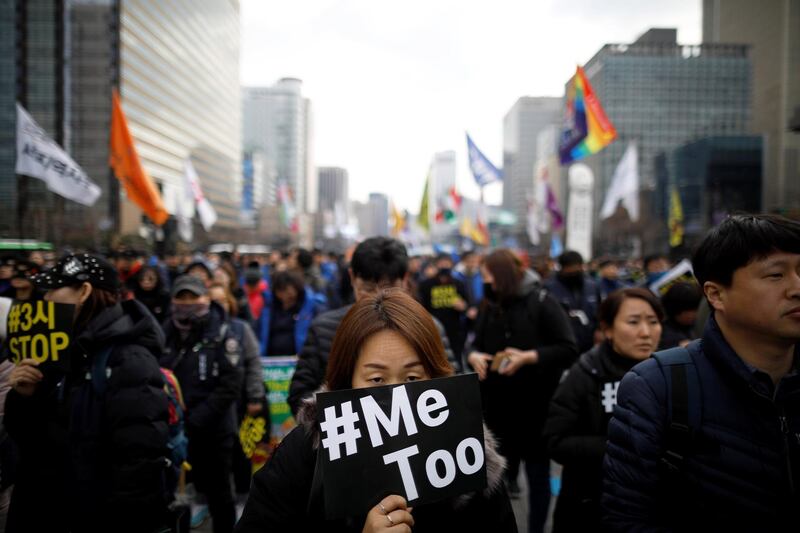In a year that has already seen women from all walks of life use their voice to empower others, Thursday's International Women’s Day seeks to encourage more people to take action to accelerate gender parity.
Riding the wave of activism that includes recent movements such as #MeToo and #TimesUp, the theme for 2018 is #PressforProgress. The aim is to galvanise collective action to further advance the progress already set in motion.
Ways to do this, according to the IWD website, include “challenge stereotypes and bias,” “forge positive visibility of women,” and “influence others’ beliefs/actions.”
In his 2018 IWD message, the United Nations' secretary-general António Guterres said the empowerment of women was the organisation's most important objective. His words came in the wake of the recent Oxfam sex scandal.
“We live in a male-dominated world with a male-dominated culture. And this is true in governments, public administrations, the private sector, but also in international organisations like the UN. And so, the central question for gender equality is a question of power. And that is why the empowerment of women is our most important objective,” he said in a IWD video.
Mr Guterres also said gender equality was the key to fighting sexual exploitation, abuse and harassment, and that the UN has already made central reforms to address its own gender balance.
“I made parity our central reform objective. We have already reached parity in the Senior Manager Group, the top level of administration of the UN. And we will soon reach it at the level of the country leaders of the UN … this will be a key instrument for us to be able to fight sexual exploitation and abuse with zero tolerance, to fight sexual harassment and make sure that we create an organisation in which women and men can work together in full equality and contribute to a world which to a world in which women and men can be in full equality.“
Another key focus of this year’s IWD is the rights and activism of rural women. The website says these women “make up over a quarter of the world population and majority of the 43 per cent of women in the global agricultural labour force”.
______________
Read more:
Sheikha Lubna: 'Close the Arab gender skills gap'
More women in aid would help sector in 'urgent need of change'
International Women's Day: Activist tells of the challenges and progress to empower rural women
______________
The UAE has, in recent years, made significant moves to improve its gender equality. In the last year, a cabinet shuffle saw nine women appointed to ministerial positions, meaning almost 30 per cent of the cabinet is now female. There are now more women in positions of authority in the UAE than there are in the US.
In 2015, the Gender Balance Council was introduced to create a supportive environment to help women play a role in the country’s development, and last year the Dubai Government raised paid maternity leave to three months for its employees, following similar moves in Abu Dhabi and Ras Al Khaimah.
Women now make up 23 per cent of ambulance workers and larger numbers are joining other emergency services and the police.
However, more could be done in the UAE in the coming years. The World Economic Forum’s Global Gender Gap report released in November 2017 ranked the country at 120 out of 140, sitting in between the Gambia and Burkina Faso.
One of the biggest women’s rights issues facing the region is the treatment of domestic workers.
Last month, amid concern over the treatment of Filipino workers in Kuwait, the body of a domestic worker was found in the freezer of an apartment.
Authorities said they suspect the victim was tortured to death by the tenants of the Kuwait flat, a Lebanese man and a Syrian woman, who have since fled the country.
The Philippines enforced a total ban on the deployment of Filipino workers to the country in response.
On Wednesday, one day ahead of IWD, the UAE’s Sheikh Mansour bin Zayed announced the launch of a special prosecution unit to try cases that involve the abuse of domestic workers. The Abu Dhabi Judicial Department said the move will "deliver justice for all community members... regardless of their economic, ethnic and religious" status.
First International Women’s Day was observed in 1911 with the UN making it official in 1975.







